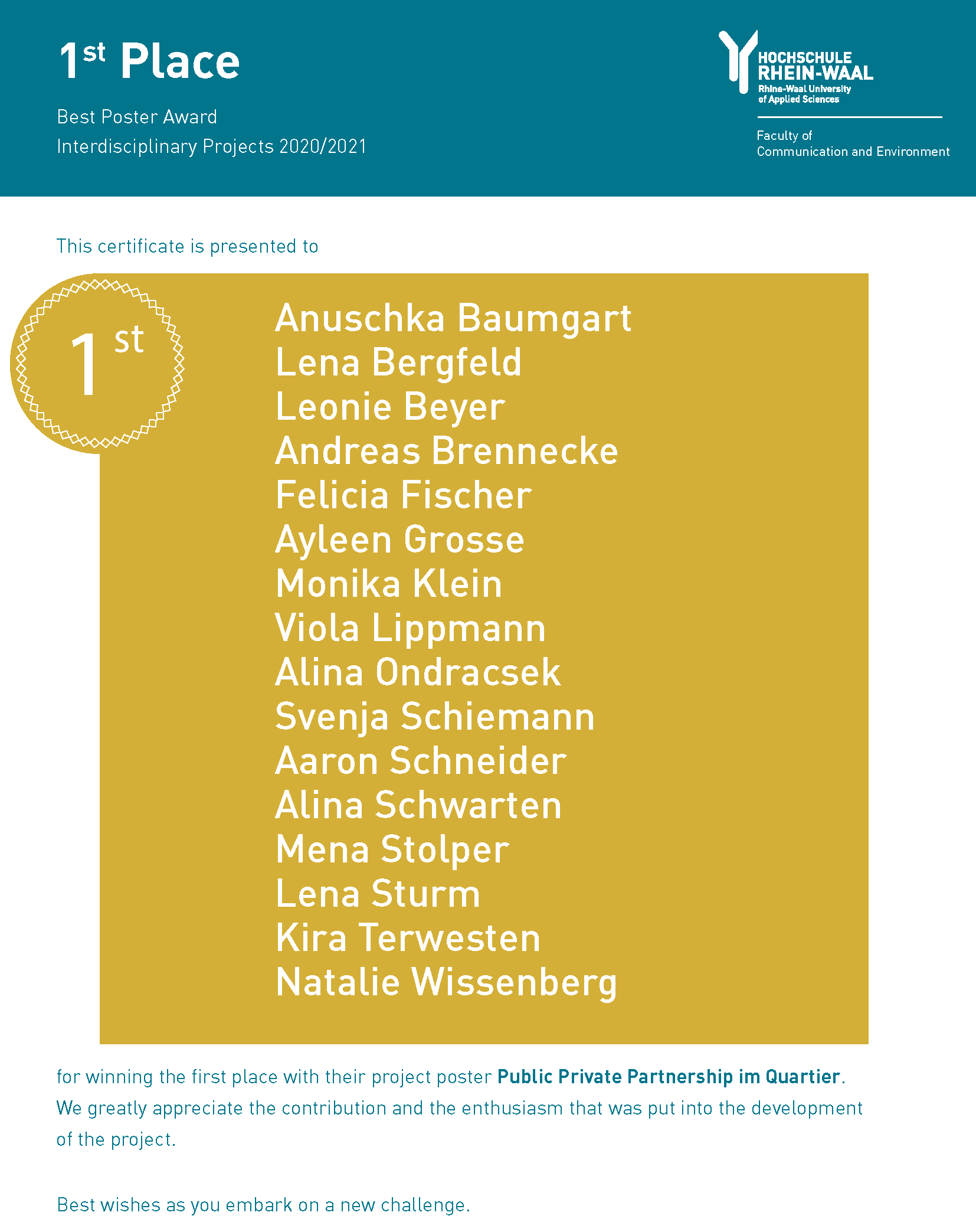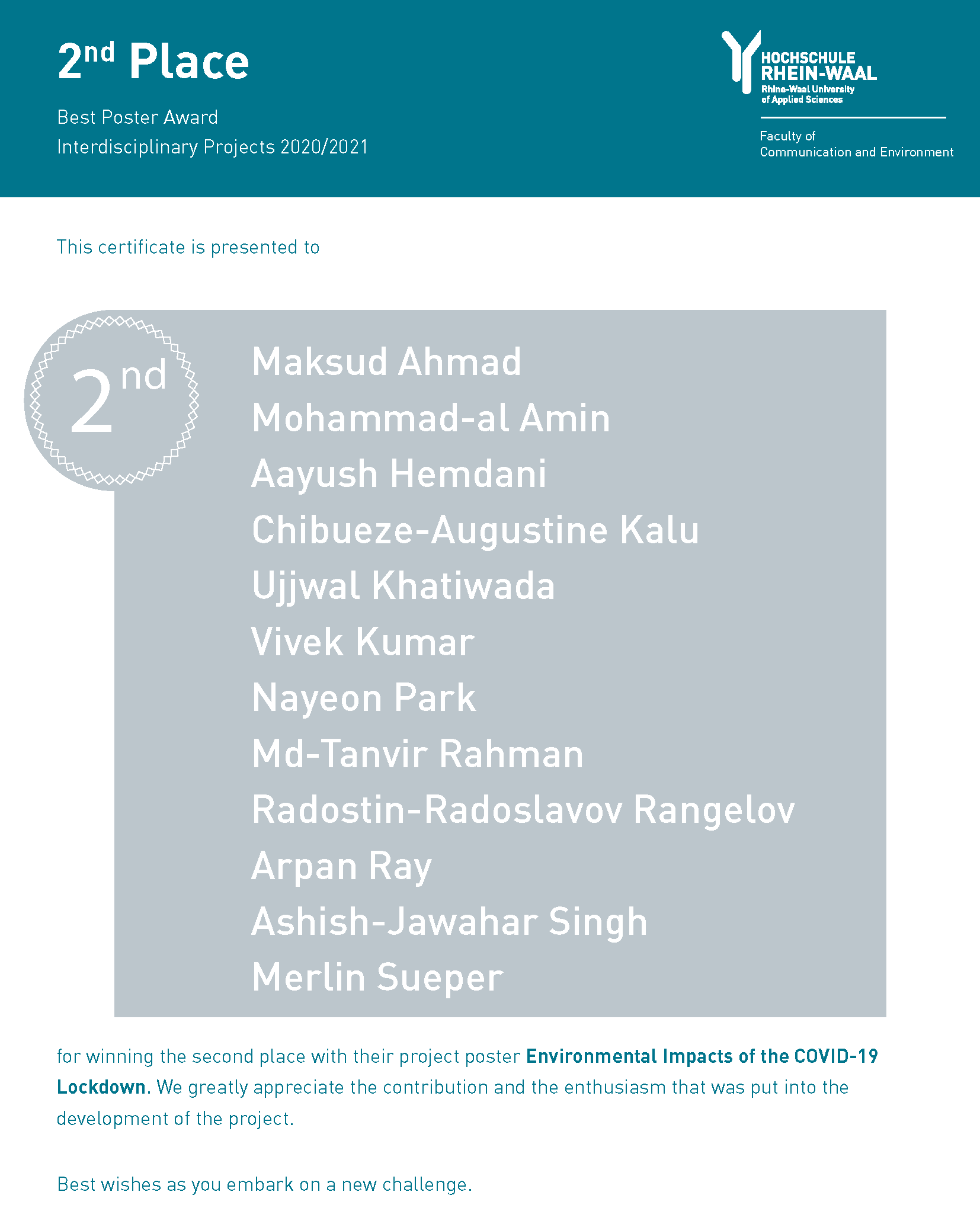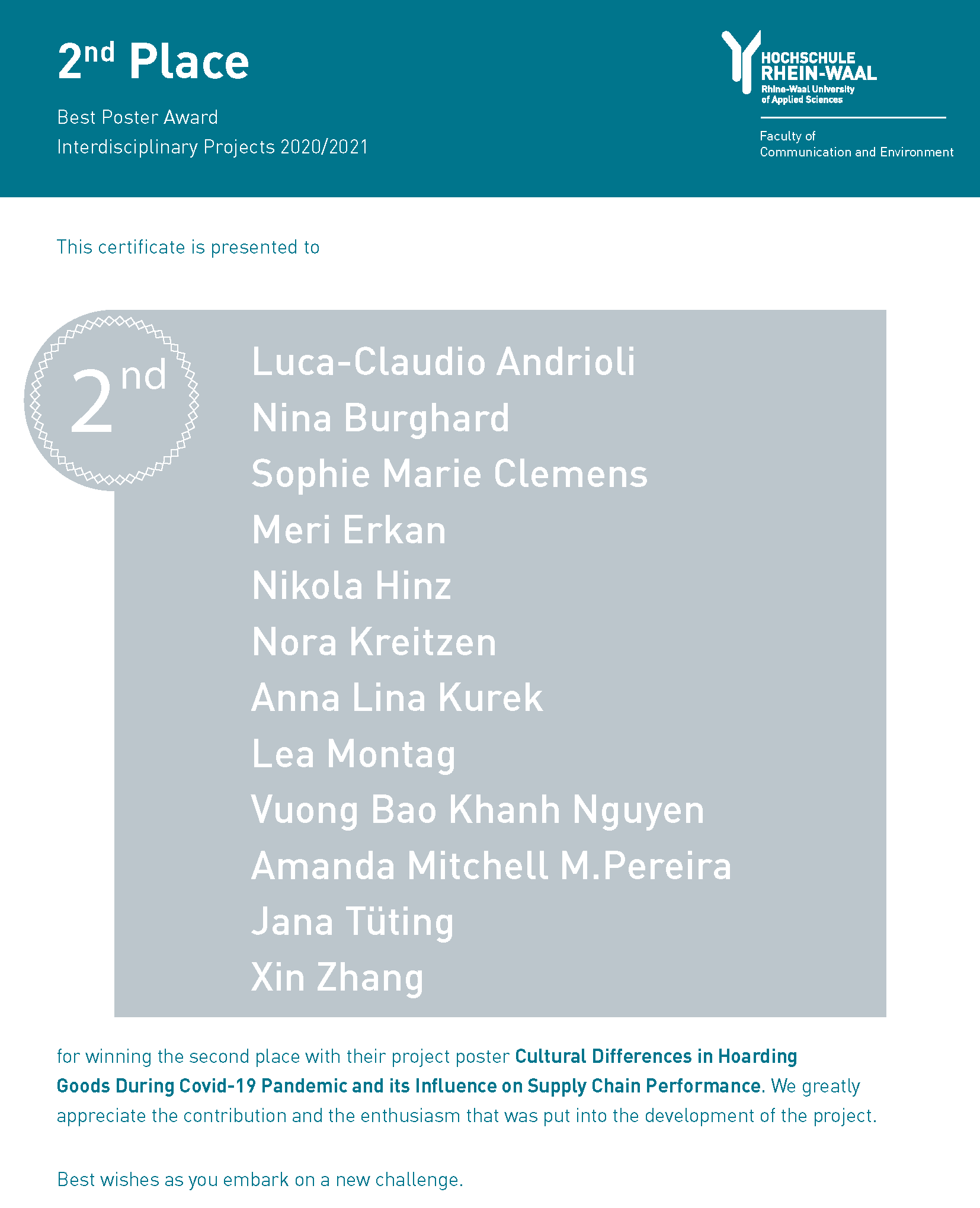Poster Award 2020/21
An integral part of every degree programme at the Faculty of Communication and Environment is an interdisciplinary project in the 5th semester. This year again, numerous project groups dealt with a wide variety of research topics and presented their results online. Afterwards the jury announced the following winners:
The first place
went to Anuschka Baumgart, Lena Bergfeld, Leonie Beyer, Andreas Brennecke, Felicia Fischer, Ayleen Grosse, Monika Klein, Viola Lippmann, Alina Ondracsek, Svenja Schiemann, Aaron Schneider, Alina Schwarten, Mena Stolper, Lena Sturm, Kira Terwesten and Natalie Wissenberg for their project poster on „Public Private Partnership im Quartier“. Supervised by Professor Dr Klaus Hegemann they investigated the cooperation of citizens with their municipal administrations in the district of Kleve in regard to voluntary engagement. In doing so, they supported the researchers of the INTERREG VA project "Volunteers 2.0" (2020-2022), which aims at improving communication and flexibility in procedures with citizens’ participation. The students of Industrial and Organisational Psychology, International Business Administration as well as Media Communication and Computer Science developed an online questionnaire on the topics of communication, appreciation, identity, politics and economy. To draw attention to the survey, they designed a marketing concept for various communication channels and received support from Antenne Niederrhein (radio interview), among others. At the end of the project, the data was analysed and recommendations for action were made available to all interested municipalities.
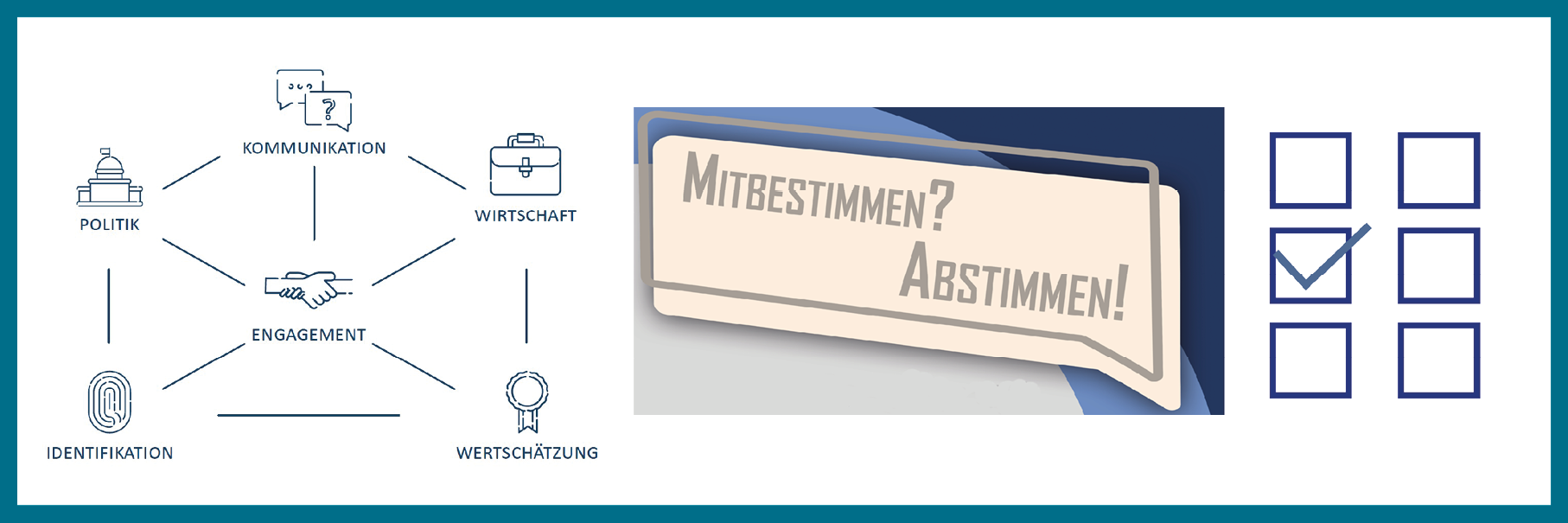
Second place was shared by
Maksud Ahmad, Mohammad-al Amin, Aayush Hemdani, Chibueze-Augustine Kalu, Ujjwal Khatiwada,Vivek Kumar, Nayeon Park, Md-Tanvir Rahman, Radostin-Radoslavov Rangelov, Arpan Ray, Ashish-Jawahar Singh and Merlin Sueper with their project „Environmental Impacts of the COVID-19 Lockdown“ as well as Luca-Claudio Andrioli, Nina Burghard, Sophie Marie Clemens, Meri Erkan, Nikola Hinz, Nora Kreitzen, Anna Lina Kurek, Lea Montag, Vuong Bao Khanh, Nguyen Amanda Mitchell, M.Pereira and Jana Tüting with the project „Cultural Differences in Hoarding Goods during Covid-19 Pandemic and its Influence on Supply Chain Performance”.
In their project "Environmental Impacts of the COVID-19 Lockdown" which was supervised by Professor Dr Ute Hansen and Professor Dr Petra Blitgen-Heinecke, Environment and Energy, Information Engineering and Computer Science, Mobility and Logistics, and Communication and Information Engineering students investigated the extent to which the emissions that had been reduced due to the COVID-19 lockdown in spring 2020 affected the quality of water, air, soil and wildlife life. By analysing a wide range of sources, they found out that air pollutant concentrations had decreased and the quality of water had improved in some areas. On the other hand, the amount of waste produced by private households had increased in many countries. In the case of wildlife, a reduced death rate by road traffic in industrialised countries contrasted with an increase in poaching in those countries that could not be adequately address the topic during the lockdown period.
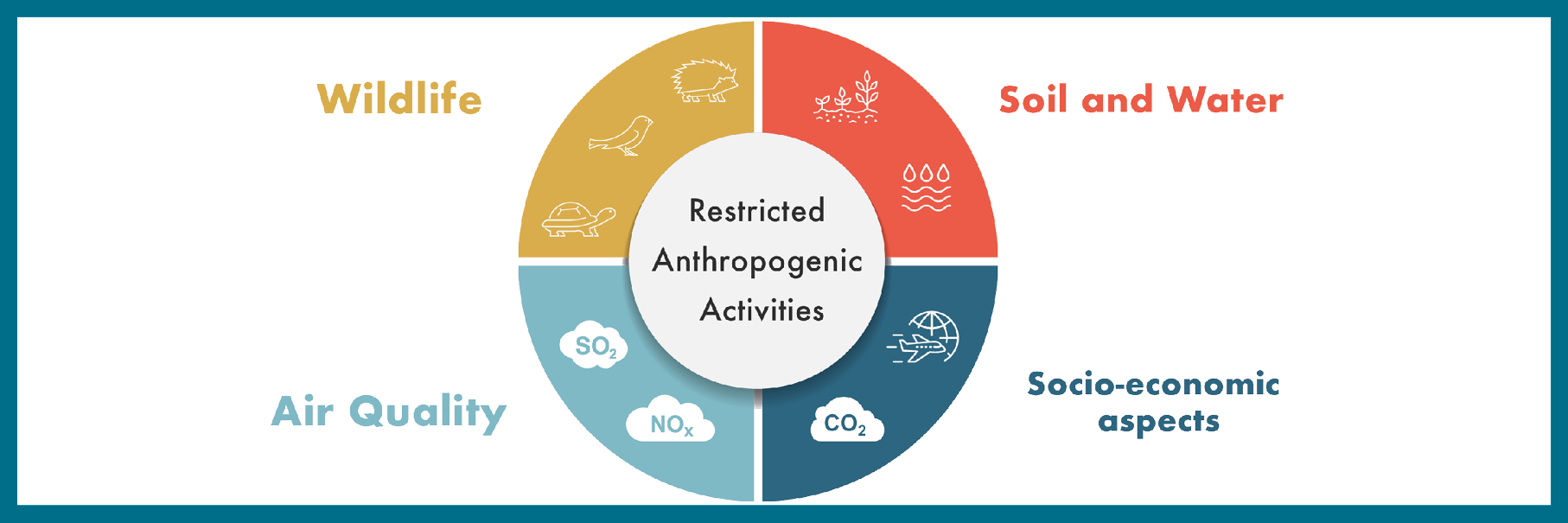
Led by Professor Dr Dirk Bruckmann and Professor Dr Mona Wappler, Industrial and Organisational Psychology, International Business Administration as well as Mobility and Logistics students analysed the different reactions of the Chinese, German, and Italian population to the upcoming lockdown. In their project "Cultural Differences in Hoarding Goods during COVID-19 Pandemic and its Influence on Supply Chain Performance" they researched which products were in particularly high demand and how these changes affected supply chains. Common to all three countries was the increased demand for disinfectants, protective equipment and non-perishable food but cultural differences were evident in the details. While rice was in high demand in China, noodles (or pasta) were favoured in Germany and Italy. Important for the overall economy was e.g. the shortage of labour in the Chinese economy due to the strict quarantine measures and the disruption of supply chains caused by short-term border closures.
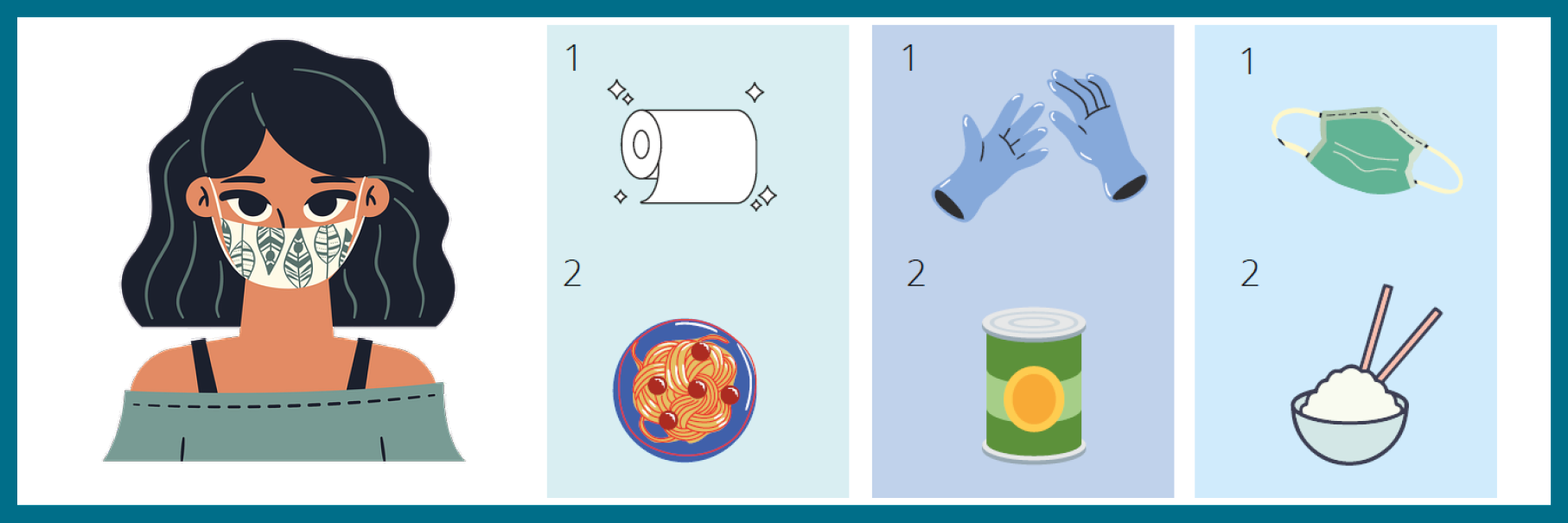
Congratulations!

